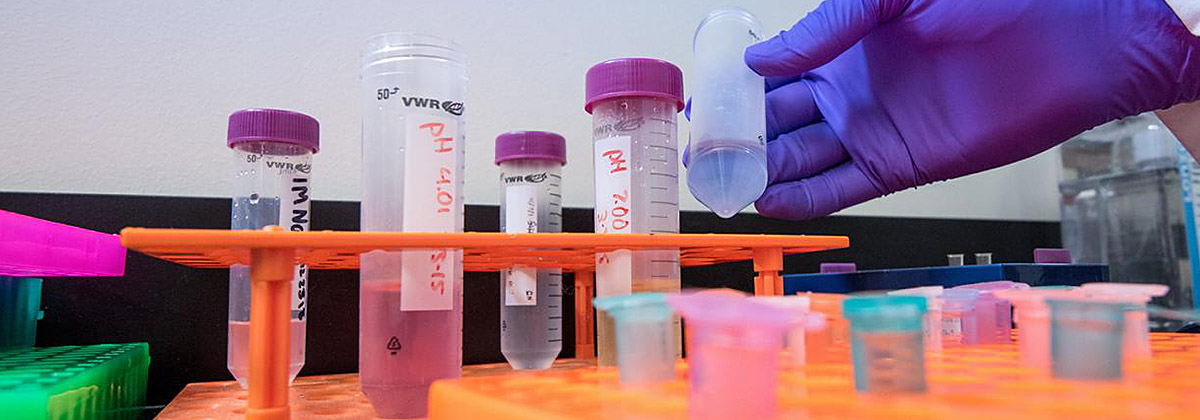Translational studies of the molecular mechanisms of disease in a unique setting combining basic and clinical science.

Welcome to Experimental Pathology, where basic, translational, and clinical research projects are laying the critical foundations for the development of the next generation of medical therapies and tests.
Currently, the investigative themes highlighted in Experimental Pathology include tumor biology, vaccine and adjuvant biology, inflammatory and allergic responses, and vascular biology. Breakthroughs in these areas lead to the better understanding of disease progression, the development of new tests, and the discovery of specific markers for early diagnosis of disease.
These research themes are pursued by an interdisciplinary team of outstanding investigators from both the Experimental Pathology and the Anatomic and Clinical Pathology Divisions, as well as faculty with secondary appointments in the Pathology Department. Alongside these faculty members are a cadre of highly motivated trainees enrolled in the PhD graduate program, as well as residents and fellows in the Clinical Pathology Division. Housed in the Department is a state of the art core of research services and facilities that are readily accessible to researchers. Working in concert, the Experimental Pathology Division continues to excel in undertaking groundbreaking research and training of the next generation of successful scientists.
Experimental Pathology at Duke University Department of Pathology focuses in the following five areas:
-
Inflammation & Immunity research is aimed at investigating episodes that occur when white blood cells and their products interact with host cells and tissues, infectious agents, or environmental toxicants. Emphasis is placed on the events that initiate and regulate the inflammatory response and diseases that result from aberrant regulation.
-
Tumor Biology & Genomics research involves analysis of neoplasia at all levels of involvement: molecular, nuclear, cell membrane, intracellular, and matrix. Current research includes the identification and analysis of the genetics basis for neoplastic events and the application of novel therapies, including immunotherapy.
-
Vaccine Biology & Design research seeks to identify vaccine candidates in microbiology categories and to develop efficacious adjuvants and immunization strategies for vaccines against emerging and infectious agents of biowarfare.
-
Vascular Biology research seeks to understand processes occurring at the interface between the vessel wall and blood. This includes studies of cell-cell, cell-matrix, and protein-cell interactions, particularly involving receptor-mediated events. Emphasis is also placed on the structure and function of blood proteins involved in these processes.
-
Diagnostic research seeks to develop new tests and markers for the early diagnosis of diseases.